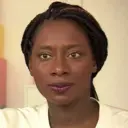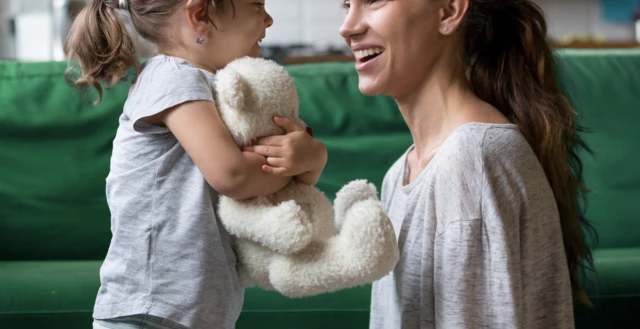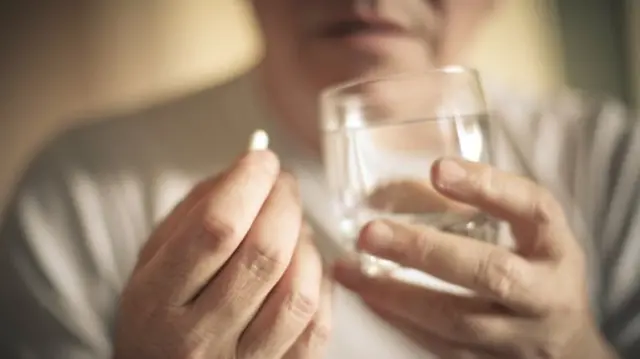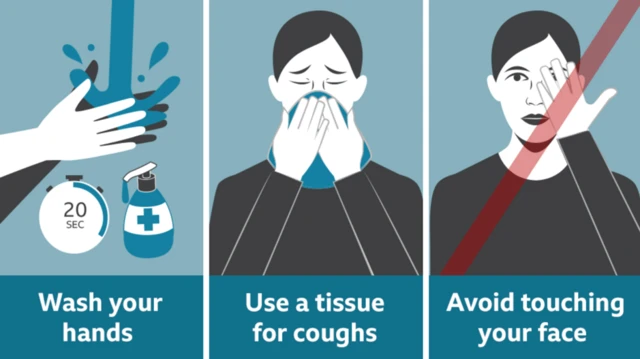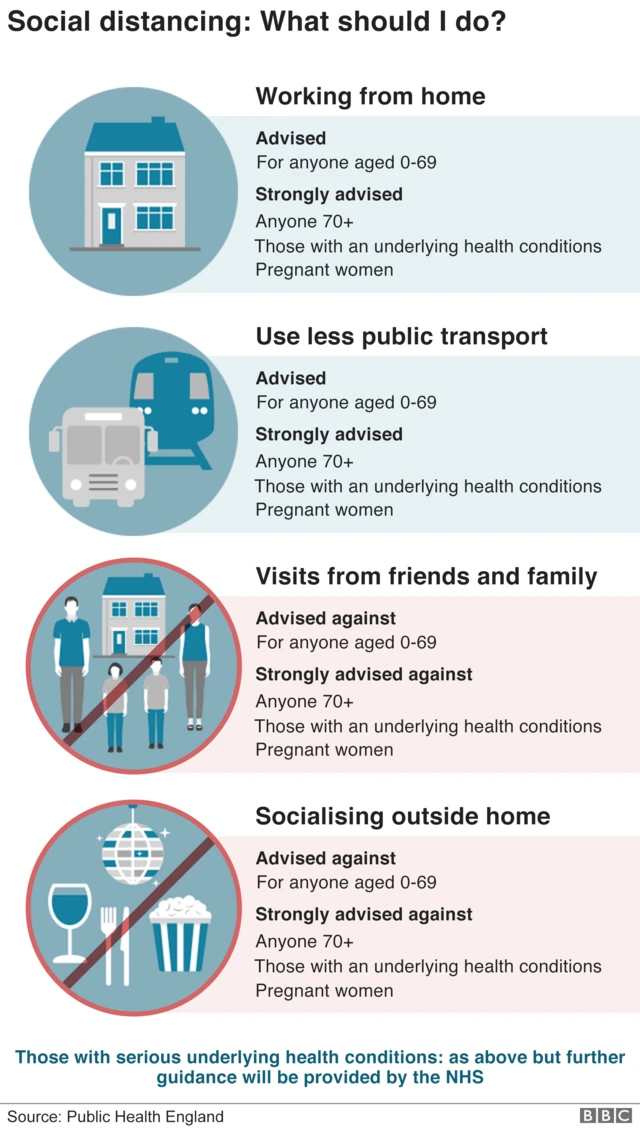Thanks for following todaypublished at 16:58 GMT 19 March 2020
We know it's a worrying time for many of you, so we hope the advice from our correspondents today has helped put your minds at ease a little.
We're going to wrap up this special live page for today but our experts will continue to answer your questions across the BBC's television, radio and online output for as long as coronavirus is around.
You can get in touch by emailing YourQuestions@bbc.co.uk or tweet us using the hashtag #BBCYourQuestions, external




